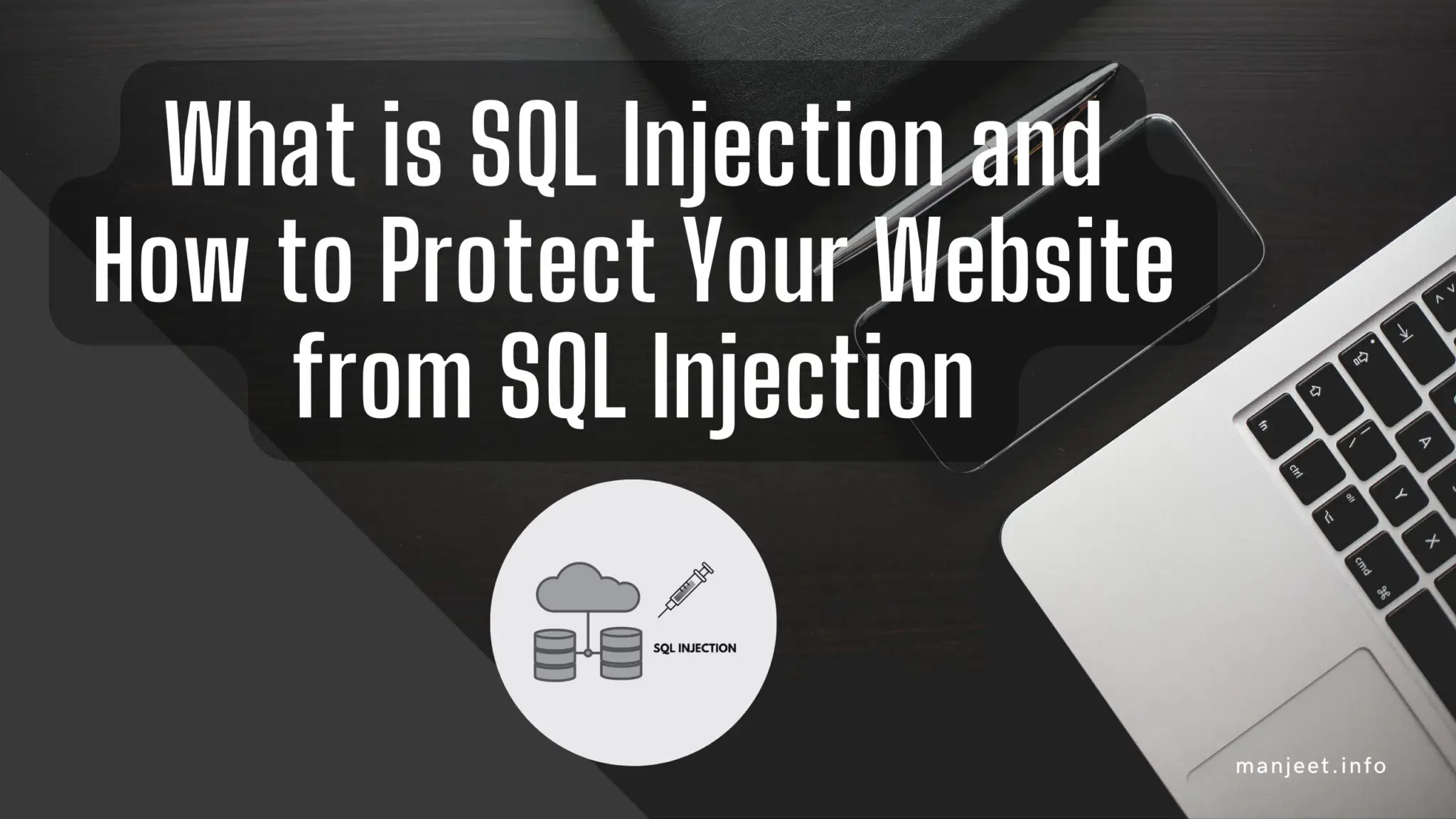SQL Injection is an online attack that can have significant repercussions for the security of your site. It is a method through which the intruders implant malicious SQL code in a website's database, which may result in either loss or theft of data or corrupted data. This blog post will discuss SQL injection, its mechanics, and how to protect the website against it.
What is SQL Injection?
SQL Injection represents an injection attack targeting websites that employ SQL databases. The attack takes advantage of the weaknesses in the website code, whereby the attacker can include malicious SQL code in the website's database. This allows the attackers to access, manipulate, or delete information stored in the database.
How does SQL Injection work?
SQL Injection attacks exploit vulnerabilities, invalidating a specific website's input. Input query guarantees the validity and safety of the information entered in a form or the fields of a website. A user must insert information in a form or enter data in a field; the code on the site should validate data and ensure it is safe to be stored in the database.
If the website code fails to verify the input data appropriately, an attacker will exploit the flaw by typing malicious SQL code into the input form. This malicious code can then be executed on the site's database, thus giving the attacker unauthorized access to the database and its contents.
How do you protect your website from SQL injection?
- Use prepared statements and parameterized queries: Prepared statements and parameterized queries are two of the best solutions to SQL injection to protect your website. Prepared statements. One way to write SQL statements is to disassociate the query's logic from the data going into the query using prepared statements. That guarantees that they do not accept input data as SQL code. Meanwhile, parameterized queries provide placeholders for the data, but are filled out with actual data.
example in nodejs:
const mysql = require('mysql2'); // Create connection pool const pool = mysql.createPool({ host: 'localhost', user: 'username', password: 'password', database: 'test' }); // User input const userId = "1'; DROP TABLE users; --"; // Safe prepared statement pool.execute( 'SELECT * FROM users WHERE id = ?', [userId], function (err, results) { // Handle results } );
- Sanitize input data: Sanitizing all input data is another tool you can use to protect your website against SQL injection. Sanitizing of input data entails eliminating any undesirable characters or code that may be employed to exploit malicious code in the database. Input data can be sanitized by creating an allowlist of authorised characters and discarding any input data that does not fall within the authorised format.
example in nodejs:
const validator = require('validator'); // Sanitize and validate email let email = ' [email protected]<script> '; email = validator.normalizeEmail(email); email = validator.trim(email); if (validator.isEmail(email)) { // Valid email } // Escape HTML const unsafe = '<script>alert("xss")</script>'; const safe = validator.escape(unsafe);
- Limit user privileges: Restricting user privileges will also assist in defending the site against SQL injection attacks. Limiting user privileges to ensure they only have access to the website is possible. This will reduce the harm inflicted by an attacker who unlawfully gets access to the database.
example in nodejs:
-- Create a user with minimal privileges (read-only access to one database) CREATE USER 'app_user'@'localhost' IDENTIFIED BY 'strong_password'; GRANT SELECT ON my_app_db.* TO 'app_user'@'localhost'; -- For a user that needs to write to specific tables only CREATE USER 'writer_user'@'localhost' IDENTIFIED BY 'another_password'; GRANT SELECT, INSERT, UPDATE ON my_app_db.users TO 'writer_user'@'localhost'; GRANT SELECT ON my_app_db.products TO 'writer_user'@'localhost'; -- Never do this in production (super dangerous): -- GRANT ALL PRIVILEGES ON *.* TO 'user'@'%' WITH GRANT OPTION;
- Keep your website's software up to date: Keeping your site's software up to date is also critical in ensuring the safety of your site against SQL Injection attacks. New vulnerabilities are continuously found, and software security fixes can regularly contain patches for the latest vulnerabilities. Using up-to-date software versions is another data security tip; updating your software helps secure your site and deal with known vulnerabilities.
Conclusion
SQL injection has remained a key threat to your web security, and it is vital to put measures in place to guard your site against it. Preparing statements and parameterized queries, sanitizing input data, restricting user privileges, and keeping your software up-to-date would help guard your website against SQL injection attacks. Being aware of the dangers posed by an SQL Injection attack and taking measures to secure the site where the attack will occur are critical since the impact can be devastating.
Read also Protect Your Website from Hackers: A Comprehensive Guide to Website Security
